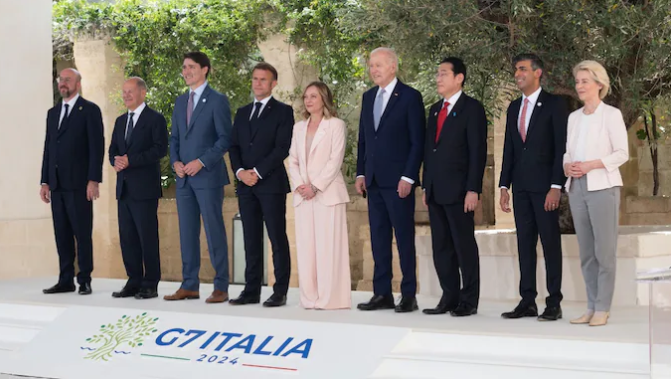G7 Nations Unite to Combat Climate Change: Landmark Agreement to Phase Out Coal Power by 2035 (GS Paper 3, Environment)

Introduction:
- In a monumental move to address the pressing threat of climate change, energy ministers from the Group of Seven (G7) nations have forged an historic agreement to shutter their coal-fired power plants by the year 2035.
- This landmark pact signifies a significant stride towards fulfilling the objectives outlined at the COP28 United Nations climate summit, signaling a collective commitment to curbing greenhouse gas emissions and transitioning towards cleaner, more sustainable energy sources.
The Coal Phase-Out Agreement:
- Amid mounting concerns over the detrimental environmental impacts of coal combustion, the G7 nations have taken decisive action to accelerate the transition to renewable energy.
- By pledging to decommission their coal-fired power facilities within the next decade and a half, these advanced economies are poised to reduce their carbon footprint and mitigate the adverse effects of global warming.
Global Leadership in Climate Action:
- The Group of Seven, comprising Canada, France, Germany, Italy, Japan, the United Kingdom, and the United States, along with the European Union as a non-enumerated member, stands as a beacon of global leadership in the fight against climate change.
- Grounded in shared values of pluralism, liberal democracy, and representative governance, the G7 forum serves as a platform for fostering international cooperation and advancing collective efforts to address pressing global challenges.
Origins and Evolution of the G7:
- The roots of the G7 can be traced back to a modest gathering of finance ministers in 1973, convened with the aim of coordinating economic policies among industrialized nations.
- Since its inception, the forum has evolved into a prestigious assembly of world leaders, convening annually to deliberate on a wide array of issues spanning trade, security, economics, and, increasingly, climate change.
Promoting Sustainable Development:
- The decision to phase out coal power reflects the G7's unwavering commitment to promoting sustainable development and safeguarding the health of the planet for future generations.
- By embracing clean energy alternatives and embracing innovation, these nations are poised to not only reduce their greenhouse gas emissions but also spur economic growth and foster a more resilient and equitable global society.
Conclusion:
- The G7's bold initiative to eliminate coal-fired power generation represents a watershed moment in the global effort to combat climate change.
- As the world grapples with the urgent imperative to transition towards a low-carbon future, the collective action and leadership demonstrated by the G7 nations serve as a beacon of hope and inspiration.
- By working together, we can forge a path towards a more sustainable and prosperous world for all.


